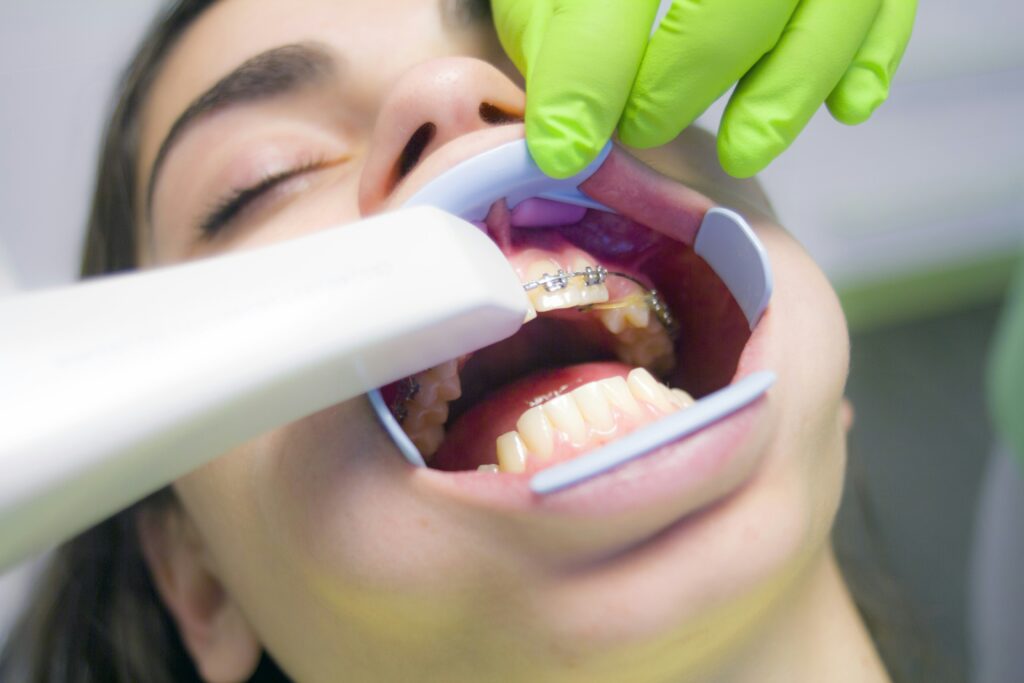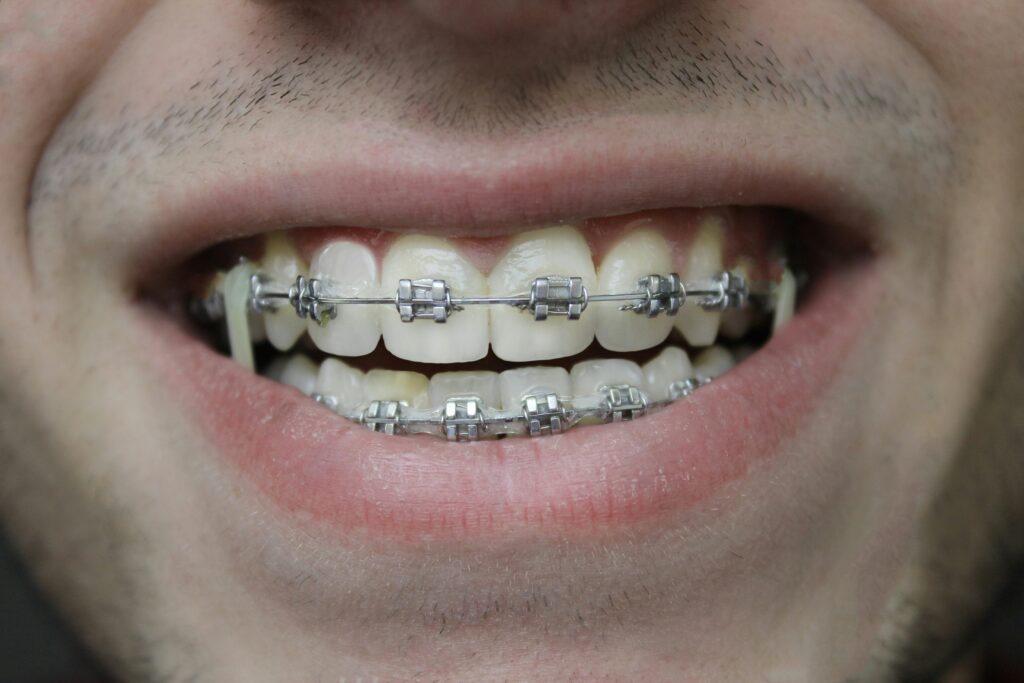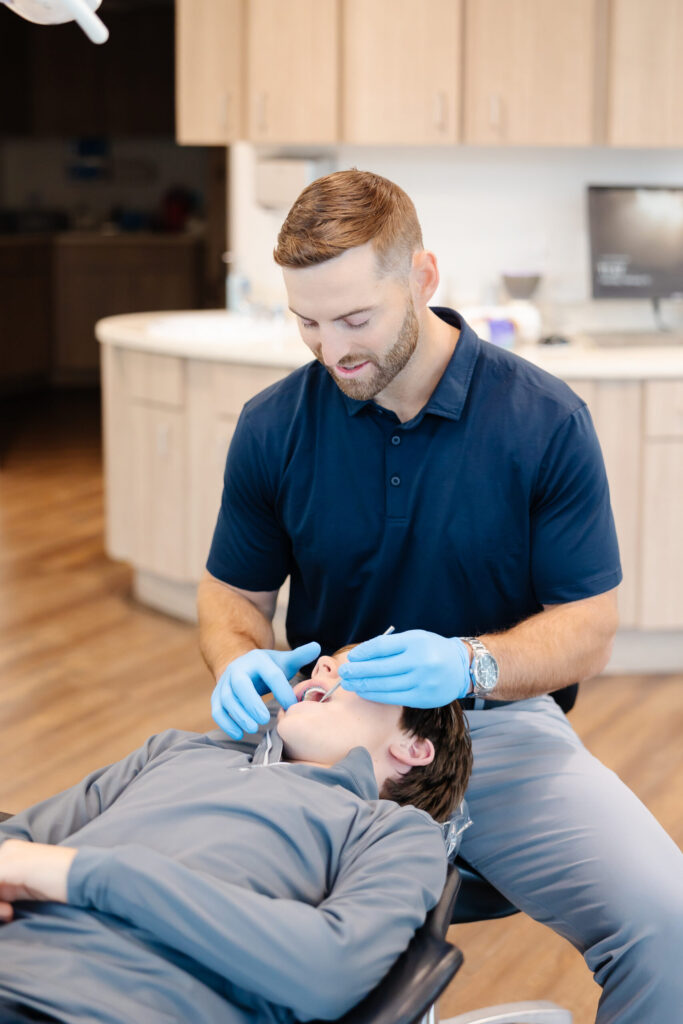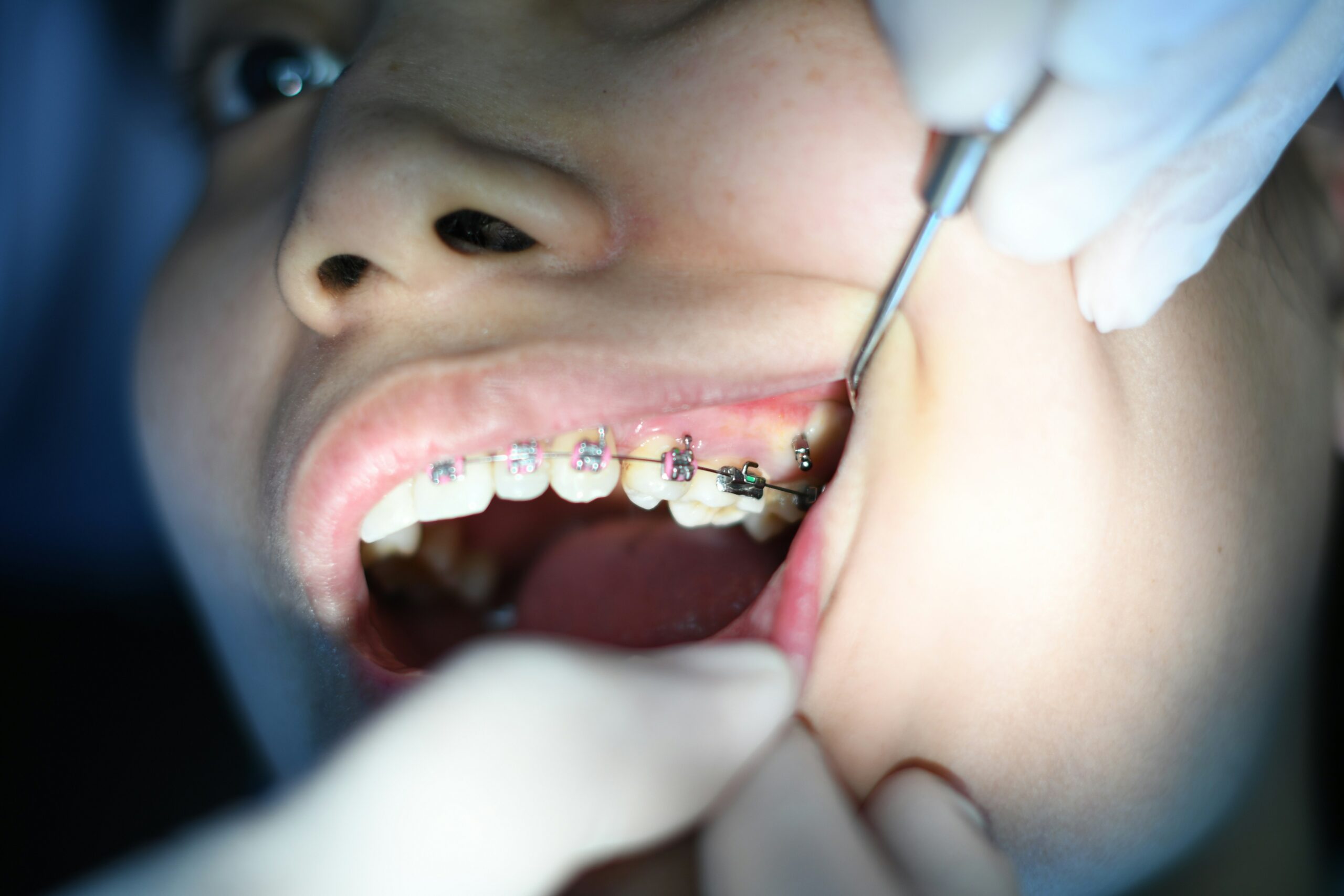If you’re experiencing bad breath while wearing braces, you’re not alone. Many patients at Bean Orthodontics in Plano, Texas notice changes in their breath during orthodontic treatment. With proper oral hygiene and understanding of what causes halitosis, you can maintain fresh breath throughout your journey to a perfect smile.
Dr. Blake Bean and our team want every patient to feel confident during their orthodontic care. Let’s explore why dental braces can contribute to bad breath and how to keep your breath fresh.
Why Wearing Braces Can Lead to Bad Breath
Bad breath, also known as halitosis, occurs when bacteria produce sulfur compounds that create unpleasant odor. Braces create additional spaces where food particles and bacteria accumulate, making good oral hygiene more challenging.
The brackets, wires, and bands of dental braces create small spaces where food debris gets trapped. Even clear aligners require special attention to prevent bacterial buildup. When food particles remain, bacteria multiply and produce foul odor associated with poor oral hygiene.
Wearing braces can cause dry mouth, especially during adjustment periods. Reduced saliva production means less natural cleansing action. Since saliva helps neutralize acids and wash away bacteria, decreased saliva flow contributes to chronic bad breath.

Common Causes of Halitosis During Treatment
Food particles are the primary cause behind bad breath in patients wearing braces. Even tiny pieces become problematic when trapped around brackets and wires. Sticky foods are particularly troublesome, adhering to orthodontic appliances for extended periods.
Poor oral hygiene practices become magnified with dental braces. Areas that were easy to clean now require special attention. Standard brushing alone often isn’t sufficient to remove debris from around brackets.
Plaque buildup occurs more rapidly because bacteria have more surfaces to adhere to. When plaque hardens into tartar, it creates an environment where bad breath causing bacteria thrive, potentially leading to gum disease and tooth decay.
Certain foods cause persistent bad breath. Garlic, onions, and spicy foods can become trapped around brackets and continue producing unpleasant smell long after eating. Sugar-rich foods feed oral bacteria, accelerating growth and production of compounds that cause bad odor.

Prevention Strategies for Fresh Breath
Preventing bad breath requires establishing comprehensive oral hygiene habits. This means brushing after every meal, not just twice daily. When you can’t brush immediately, rinse thoroughly with water to dislodge food particles.
Use a soft-bristled brush designed for orthodontics or an electric toothbrush with specialized heads. Brush for at least two minutes, paying special attention to the gumline, around each bracket, and under wires.
Flossing becomes more challenging but equally important when wearing braces. Traditional dental floss requires special techniques, so consider using floss threaders or water flossers. These tools help remove debris from between teeth and around brackets.
Incorporate an antimicrobial mouthwash into your routine, preferably alcohol-free to prevent dry mouth. Use mouthwash to reach areas that brushing and flossing might miss, helping neutralize odor causing bacteria.
Stay hydrated to maintain healthy saliva production. Drinking water regularly stimulates saliva flow, which naturally cleanses your mouth. If you experience persistent dry mouth, consider sugar-free gum or breath mints to stimulate saliva.
Recommended Products for Better Oral Health
Several specialized products can make maintaining fresh breath easier during orthodontic treatment. Interdental brushes are small, cone-shaped tools perfect for cleaning around brackets and under wires. Water flossers use pressurized water to flush out debris from braces components, reaching areas that traditional dental floss can’t access.
Consider using a tongue scraper as part of your daily routine. Bacteria on the tongue contribute significantly to halitosis, harboring odor-producing bacteria that regular brushing might not remove.
Travel-sized oral hygiene kits ensure you can maintain your routine throughout the day. Pack a travel toothbrush, toothpaste, floss threaders, and mouthwash for cleaning teeth after meals, even when away from home.

Daily Oral Health Routine
Morning care should begin with thorough brushing and flossing before breakfast. This removes bacteria that accumulated overnight. After breakfast, brush again, paying attention to any trapped food particles.
Throughout the day, rinse with water after eating. If possible, brush after lunch and substantial snacks. When brushing isn’t feasible, use antimicrobial mouthwash to combat bad breath causing bacteria.
Your evening routine should be most comprehensive. Take extra time to brush carefully around each bracket, floss thoroughly, and finish with mouthwash.
For patients using clear aligners, remove them before eating and clean both your teeth and aligners thoroughly before reinsertion. Aligners can trap bacteria and food particles, contributing to bad breath and potential tooth decay.
When Professional Help is Needed
While bad breath is usually manageable with proper oral hygiene, certain situations require professional attention. Persistent bad breath despite thorough cleaning routines could indicate gum disease, tooth decay, or other oral health issues.
Swollen, bleeding, or tender gums around braces may signal gingivitis or advanced gum disease. These conditions cause significant unpleasant odor and require professional orthodontic care.
Contact Bean Orthodontics immediately if you experience pain, unusual taste, or notice white spots on teeth around brackets. These symptoms could indicate developing cavities requiring prompt treatment.
Regular checkups become even more important during orthodontic treatment. Professional cleanings remove tartar buildup that home care can’t address.
Maintaining Confidence During Treatment

Maintaining fresh breath is entirely achievable with the right approach and consistency. Most patients find their oral hygiene routine becomes natural within weeks of starting treatment. The effort you invest pays dividends in both oral health and confidence.
At Bean Orthodontics in Plano, Texas, we support patients from Richardson, Frisco, Carrollton, and surrounding areas through every aspect of orthodontic care. If you’re experiencing persistent bad breath or have questions about maintaining optimal oral health during treatment, contact our office today.
Ready to ensure your orthodontic journey includes confidence and fresh breath? Schedule an appointment with Dr. Bean to discuss personalized strategies for maintaining excellent oral hygiene throughout your treatment.



